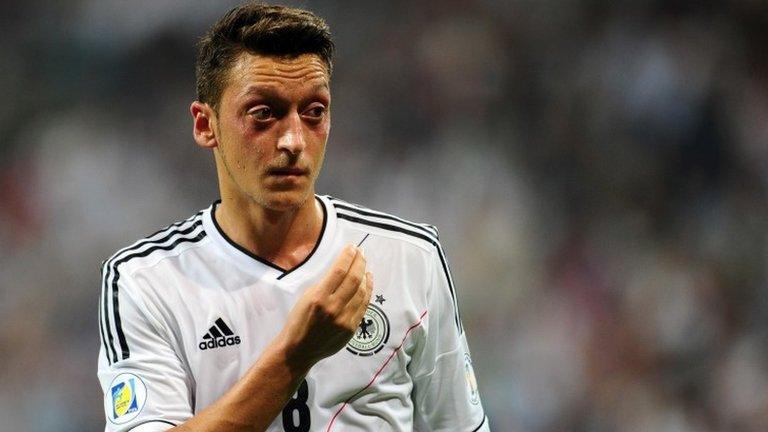2014 Fifa World Cup: Guide to Belgium's Group H
- Published
BELGIUM (seeded)
How do they play?
Style & formation: Belgium's powerful side try to dominate possession and their opposition, pinning them deep inside their own half. Full-backs offer width; wide players stretch play further while a staggered central midfield trio allow for intricate passing
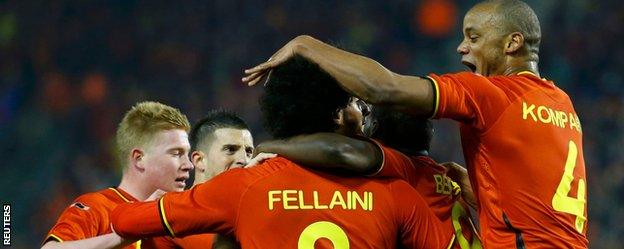
Manchester United's Marouane Fellaini and Manchester City's Vincent Kompany are two of 12 Premier League players in the Belgium squad
A feature of their usual 4-3-3 system is the frequent positional interchanging between their attacking players.
Strengths: Their, er, strength for one thing; Belgium are a physically imposing side and seldom outmuscled.
They also have an abundance of versatile attacking players and, crucially, a tight-knit team spirit instilled by coach Marc Wilmots.
Weaknesses: Despite all their possession, Belgium can have trouble breaking the opposition down. Wilmots's men play a high line trying to squeeze the pitch leaving them susceptible to the counter-attack. While the wide players like to drift infield and do not routinely help out with defensive duties - which can leave the full-backs exposed.
Key player
Chelsea's Eden Hazard, 23 is vital to Belgium's hopes. Given licence to roam, Hazard plays across the final attacking third trying to open up the opposition with his intricate play. His clever runs can leave space for the likes of Kevin De Bruyne, Kevin Mirallas and Dries Mertens.
One to watch
The unsung hero of this talented Belgian side is defensive midfielder Axel Witsel. The 25-year-old was an ever-present in qualifying and led the team in passes made. His shielding work gives the rest of the team faith to attack.
The boss
A celebrated player, and then a less successful politician, Marc Wilmots became national coach in June 2012 after three years as an assistant. His managerial CV was restricted to undistinguished spells at Schalke and Belgian side St Truiden, but he did guide Belgium from 54th to a best-ever fifth in the Fifa rankings.
How they qualified
In emphatic fashion, registering a national record seven successive qualifying wins during an unbeaten campaign.
World Cup record
Belgium qualified for six straight World Cups from 1982 to 2002, reaching the knockout phase five times and coming fourth in 1986.
Fifa ranking: 11
Squad
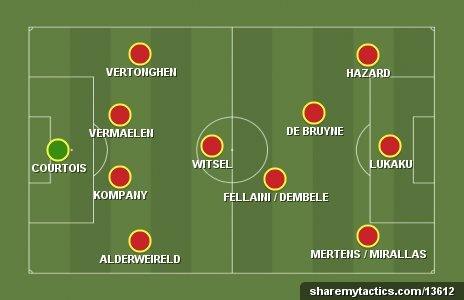
Possible starting XI
Goalkeepers: Thibaut Courtois (Atletico Madrid, on loan from Chelsea), Simon Mignolet (Liverpool), Sammy Bossut (Zulte Waregem).
Defenders: Toby Alderweireld (Atletico Madrid), Laurent Ciman (Standard Liege), Nicolas Lombaerts (Zenit St Petersburg), Vincent Kompany (Manchester City), Daniel Van Buyten (Bayern Munich), Anthony Vanden Borre (Anderlecht), Thomas Vermaelen (Arsenal), Jan Vertonghen (Tottenham).
Midfielders: Nacer Chadli, Mousa Dembele (both Tottenham), Steven Defour (Porto), Kevin De Bruyne (Wolfsburg), Marouane Fellaini, Adnan Januzaj (both Manchester United), Eden Hazard (Chelsea), Kevin Mirallas (Everton), Divock Origi (Lille), Axel Witsel (Zenit St Petersburg).
Forwards: Romelu Lukaku (Everton, on loan from Chelsea), Dries Mertens (Napoli).
ALGERIA
Prospects
Write off Algeria at your peril. No longer World Cup whipping boys, the Desert Foxes are boosted by a stronger professional league, improving standards at grassroots level and an influx of emigre players, those with Algerian parents or ancestry.
Zinedine Zidane, Karim Benzema and Samir Nasri have all previously slipped through Algeria's net. The Greens will be hoping they have turned off that particular tap that has been flowing in France's direction for many a year, and with it enhanced their own standing in world football.
World Cup stars of yesteryear Diego Maradona and Rivaldo, as well as Javier Zanetti, have been queuing up to sing the virtues of the Greens' class of 2014 - the only Arab nation present in Brazil. Maradona predicts Algeria "will cause a surprise", while Rivaldo says "the possibilities of reaching the second round are abundant".
Key player
France-born Sofiane Feghouli, 24, is an attacking midfielder or winger for Valencia who was described by Arsenal manager Arsene Wenger a year ago as "exceptional" and "a physical beast". He was named in a preliminary French senior squad for a friendly with Uruguay in 2008, aged 18.
One to watch
Retiring skipper Madjid Bougherra, formerly of Rangers, brings his decade-long international career to an end after the World Cup. He pre-dates any of his team-mates in Brazil by over two years, providing dogged defensive determination to Algeria's backline, as England found out in their goalless draw at the World Cup four years ago.
The boss
Bosnian Vahid Halilhodzic, 61, took charge in July 2011 and the disciplinarian has cast aside several established players in favour of a new generation, many of whom represented France at youth level. Brazil will be his World Cup bow as a coach, having been sacked by Ivory Coast, external three months before the 2010 finals.
How they qualified
Algeria were the last African qualifiers, beating Cup of Nations finalists Burkina Faso 1-0 in the second leg of their play-off to advance on away goals after a 3-2 first-leg defeat. They won all but one game in the previous group stage.
World Cup record
In 1982, Algeria became the first African nation to win two matches in the same finals, but they failed to qualify from the group on goal difference after Germany and Austria contrived a result, external that allowed them both to progress.
Algeria have not won a game in their subsequent two finals (1986 and 2010).
Fifa ranking: 22
Squad
Goalkeepers: Rais Mbolhi (CSKA Sofia), Cedric Si Mohamed (CS Constantine), Mohamed Lamine Zemmamouche (USM Alger).
Defenders: Essaid Belkalem (Watford, on loan from Granada), Madjid Bougherra (Lekhwya Club), Liassine Cadamuro (Mallorca), Faouzi Ghoualm (Napoli), Rafik Halliche (Academica Coimbra), Aissa Mandi (Stade Reims), Carl Medjani (Valenciennes), Djamel Mesbah (Livorno), Mehdi Mostefa (AC Ajaccio).
Midfielders: Nabil Bentaleb (Tottenham), Yasine Brahimi (Granada), Medhi Lacen (Getafe), Saphir Taider (Inter Milan), Hassan Yebda (Udinese).
Forwards: Abdelmoumene Djabou (Club Africain), Sofiane Feghouli (Valencia), Nabil Ghilas (Porto), Riyad Mahrez (Leicester City), Islam Slimani (Sporting Lisbon, Portugal), Hilal Soudani (Dinamo Zagreb).
RUSSIA
Prospects
Fabio Capello and Russia work to each other's strengths: they are desperate to be a presence on the global and European stage; he is eager to show the footballing world he is more than just a club boss.
Their miserly back-line predominantly come from CSKA Moscow, while perennial Champions League dark horses Zenit St. Petersburg provide the rest of the spine.
For the most part, Capello only calls up Russian-based players so he has got to know his squad and their strengths quickly. The midfield is key of them, playing high-tempo, pressing football. Yet their Achilles heel can be when they are subjected to it themselves.
Key player
Exciting attacking prospect Alexander Kokorin is the torch-bearer of youth in Capello's ageing side. The Italian will make room for the 23-year-old, be it on the left, behind a striker, or even as the main front man. A growing influence, Kokorin scored four goals in eight starts during qualifying and hit double figures for the second successive season in the Russian top-flight.
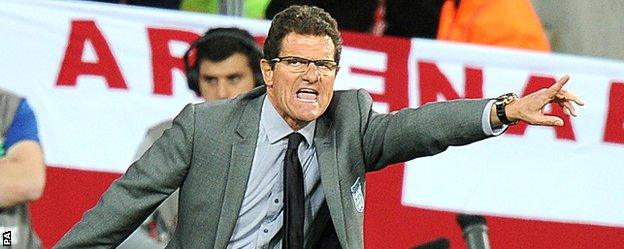
Fabio Capello will face Algeria for a second World Cup in a row, after steering England through a dire 0-0 draw in 2010.
One to watch
Russia's ageing back-line is headed by Sergei Ignashevich, one of four CSKA Moscow team-mates that could feasibly start either in goal or defence as they try to take their miserly defensive record to the world stage. The 34-year-old stalwart needs protecting from pace these days and could wilt in the Brazilian sun. He will certainly be in the party mood however if he manages to win his 100th cap at a World Cup.
The boss
Former England boss Fabio Capello inherited a side that had been meekly eliminated from Euro 2012. He quickly instilled a greater mental fortitude into the team and dropped fading force Andrey Arshavin. The Italian's authoritarian style divided opinion in England, but has earned approval in Russia - he has been given an extended contract until 2018.
World Cup team profile: Russia
How they qualified
Despite back-to-back defeats by Portugal and Northern Ireland, they edged the former to win Group F by a point. They conceded just five times in 10 games.
World Cup record
Russia has competed at two World Cups since it became independent from the USSR in 1991, failing to progress beyond the group stage in either tournament.
Despite a perceived fearsome reputation the USSR flattered to deceive on the world stage and, akin to England, enjoyed their best tournament in 1966 when they finished fourth.
Fifa ranking: 19
Squad
Goalkeepers: Igor Akinfeev (CSKA Moscow), Yury Lodygin (Zenit St Petersburg), Sergey Ryzhikov (Rubin Kazan).
Defenders: Vasili Berezutskiy (CSKA Moscow), Vladimir Granat (Dynamo Moscow), Andrey Eshchenko (Anzhi Makhachkala), Sergey Ignashevich (CSKA Moscow), Alexey Kozlov (Dynamo Moscow), Dmitry Kombarov (Spartak Moscow), Andrey Semenov (Terek Grozny), Georgi Schennikov (CSKA Moscow).
Midfielders: Denis Glushakov (Spartak Moscow), Igor Denisov (Dynamo Moscow), Alan Dzagoev (CSKA Moscow), Yury Zhirkov (Dynamo Moscow), Alexey Ionov (Dynamo Moscow), Pavel Mogilevets (Rubin Kazan), Alexander Samedov (Lokomotiv Moscow), Victor Faizulin (Zenit St Petersburg), Oleg Shatov (Zenit St Petersburg).
Forwards: Maxim Kanunnikov (Amkar Perm), Alexander Kerzhakov (Zenit St Petersburg), Alexander Kokorin (Dynamo Moscow).
SOUTH KOREA
Prospects
When South Korea and Japan were awarded the 2002 World Cup as co-hosts it was with a view to spreading the football gospel. To provide better coaching, facilities and infrastructure not only for both countries but for Asian football as a whole.
South Korea certainly embraced the gift given to them by Fifa. Their coach Hong Myung-Bo was part of Dutchman Guus Hiddink's fourth-placed finishers at that tournament. Two further Dutch coaches followed, as did several South Korean playing exports to western European club sides.
Once seen as whipping boys, the Taeguk Warriors are anything but these days and are seen as genuine challengers to qualify. This is their eighth consecutive World Cup finals appearance and they have progressed past the group stage in two of the last three editions.
World Cup 2014 team profile: South Korea
Key player
Twenty-one-year-old Son Heung Min is turning into the main creative force under Hong. Bayer Leverkusen's club record signing at £8.5m, he already has four years' worth of Bundesliga experience under his belt. Created 126 chances at Leverkusen this season, including four assists. For a youthful South Korea to be successful in Brazil.
One to watch
Kim Young-Gwon mirrors the warrior-like centre-back role performed with distinction by current head coach Hong Myung-Bo during his playing days. Aged just 24, Kim has been tipped for a bright future by club manager Marcello Lippi, Italy's 2006 World Cup-winning coach.
The boss
Hong Myung-Bo is a South Korea hero; captain of their 2002 World Cup squad that finished fourth, he was named by Pele in 2003 as one of the greatest 125 living footballers. He led South Korea to a bronze medal at the London Olympics and was the natural choice to take over a country looking for leadership last summer., external
He has done so confidently, with a new direction and without fanfare.
How they qualified
They edged Uzbekistan out on goal difference to claim the second qualification spot in Asian Group A, ending two points behind Iran. However, laboured performances, including home and away defeats to Iran and away to Lebanon, prompted coach Choi Kang-hee to quit at the end of the campaign.
World Cup record
They have made group stage exits in six of eight tournaments. The Koreans rode their luck to reach the semi-finals on home soil in 2002, and lost to Uruguay in the last 16 in 2010.
Fifa ranking: 57
Squad
Goalkeepers: Jung Sung-ryeong (Suwon Bluewings), Kim Seung-gyu (Ulsan Horang-i), Lee Bum-young (Busan I'Park)
Defenders: Yun Suk-young (QPR), Kim Young-kwon (Guangzhou Evergrande), Hwang Seok-ho (Sanfrecce Hiroshima), Hong Jeong-ho (Augsburg), Kwak Tae-hwi (Al Hilal), Lee Yong (Ulsan Horang-i), Kim Chang-soo (Kashiwa Reysol), Park Joo-ho (Mainz)
Midfielders: Ki Seung-yueng (Sunderland, on loan from Swansea), Ha Dae-sung (Beijing Guoan), Han Kook-young (Kashiwa Reysol), Park Jung-woo (Guangzhou R&F), Son Heung-min (Bayer Leverkusen), Kim Bo-kyung (Cardiff City), Lee Chung-yong (Bolton Wanderers), Ji Dong-won (Augsburg).
Forwards: Koo Ja-cheol (Mainz), Lee Keun-ho (Sangju Sangmu), Park Chu-young (Arsenal), Kim Shin-wook (Ulsan Horang-i).
Fixtures
17 June 2014
Belgium v Algeria, Estadio Mineirao, Belo Horizonte, 17:00 (ITV)
17 June 2014
Russia v South Korea, Arena Pantanal, Cuiaba, 23:00 (BBC)
22 June 2014
Belgium v Russia, Estadio do Maracana, Rio de Janeiro, 17:00 (BBC)
22 June 2014
South Korea v Algeria, Estadio Beira-Rio, Porto Alegre, 20:00 (ITV)
26 June 2014
South Korea v Belgium, Arena de Sao Paulo, Sao Paulo, 21:00 (ITV)
26 June 2014
Algeria v Russia, Arena da Baixada, Curitiba, 21:00 (ITV)
- Published26 May 2014
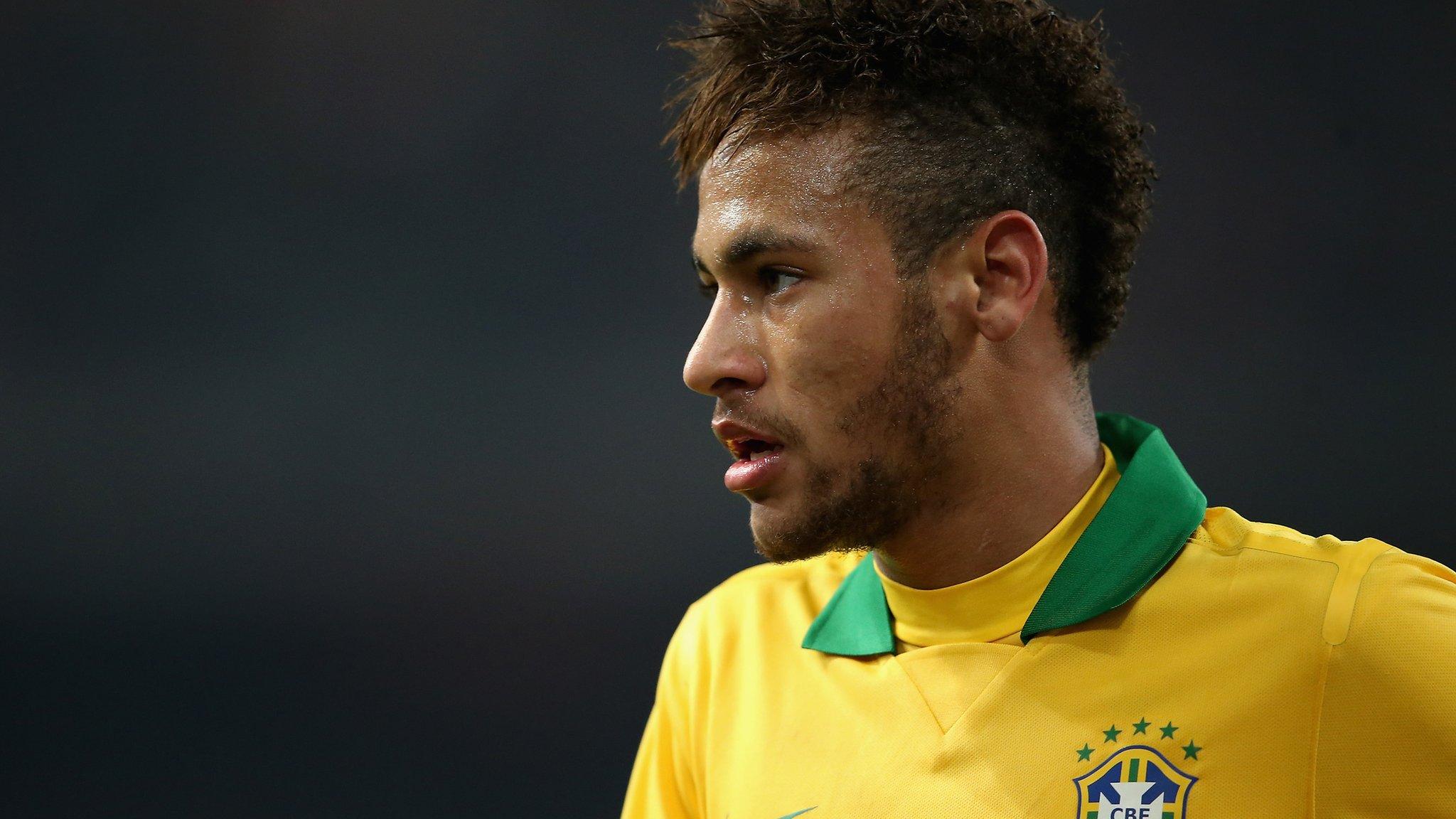
- Published23 May 2014
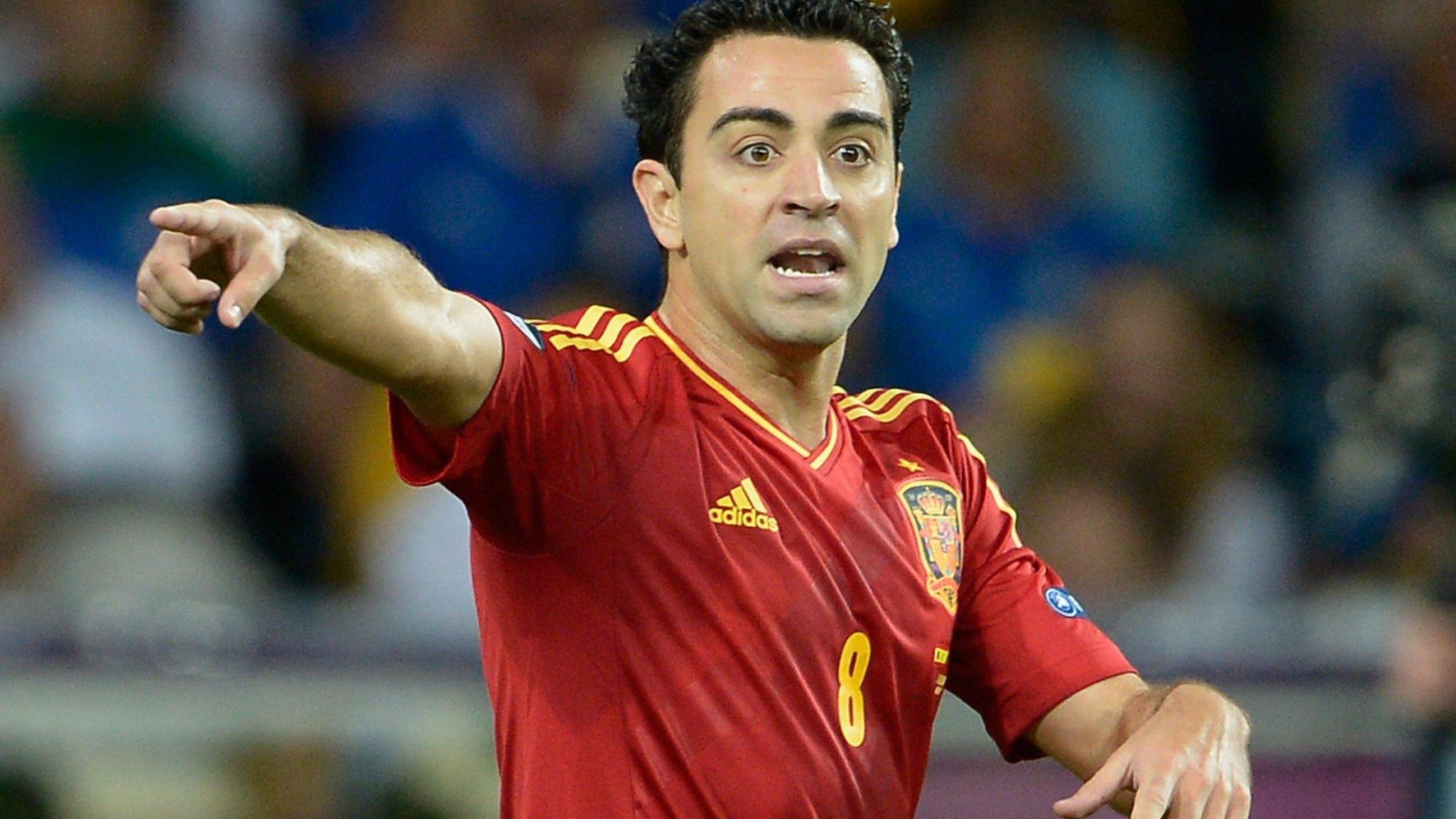
- Published9 June 2014
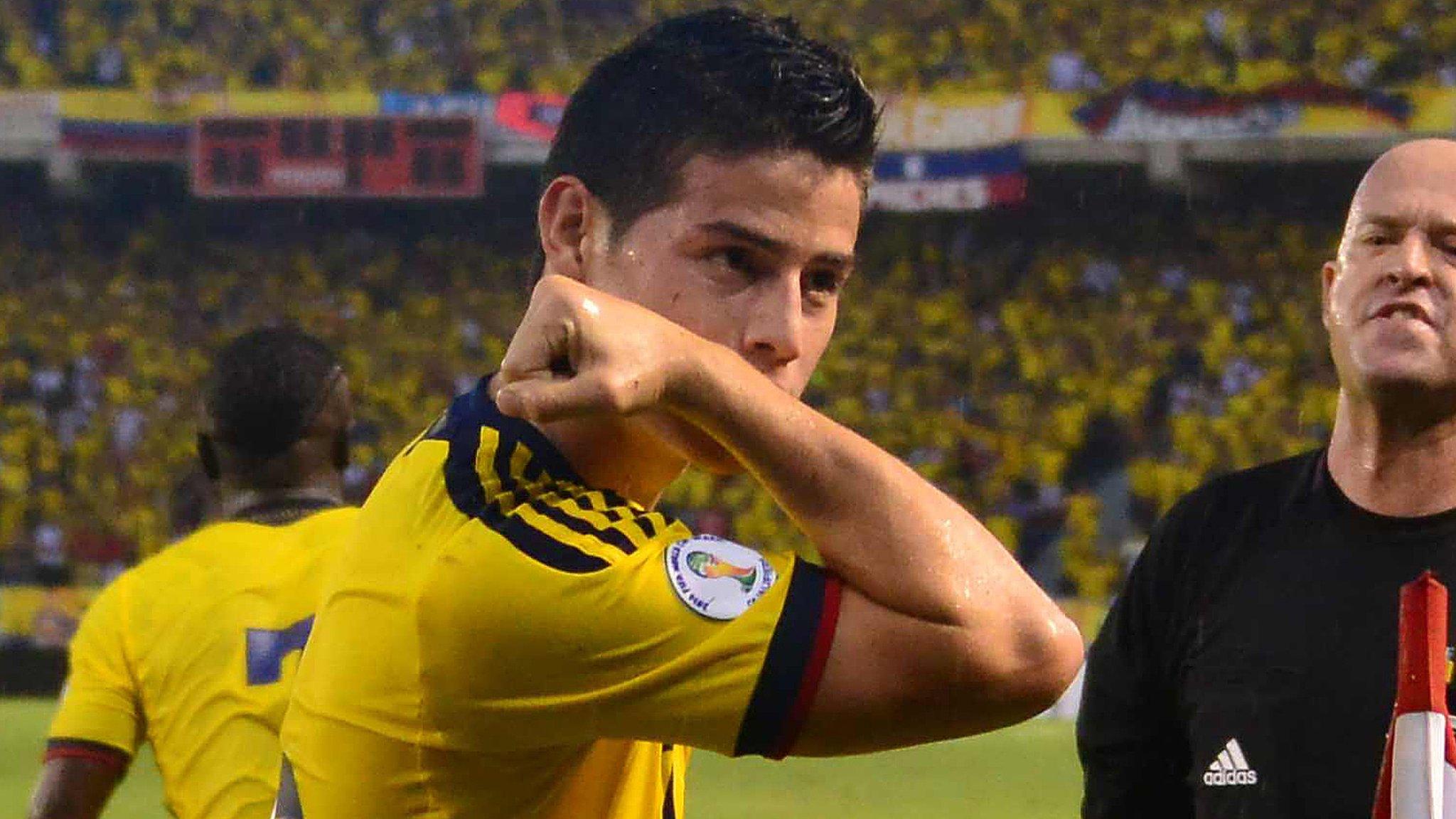
- Published30 May 2014
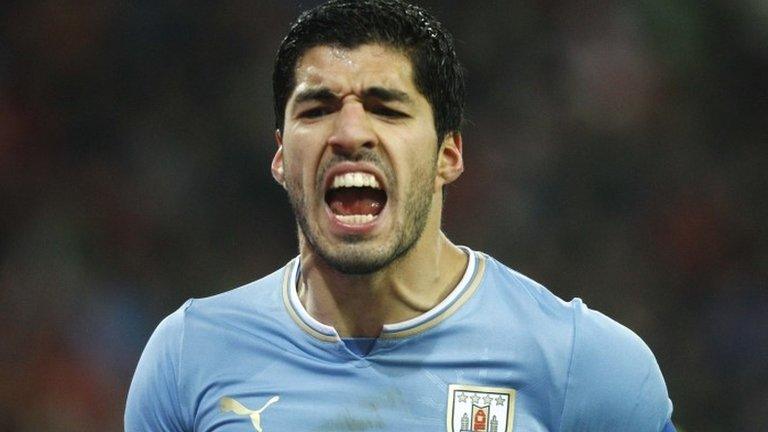
- Published23 May 2014
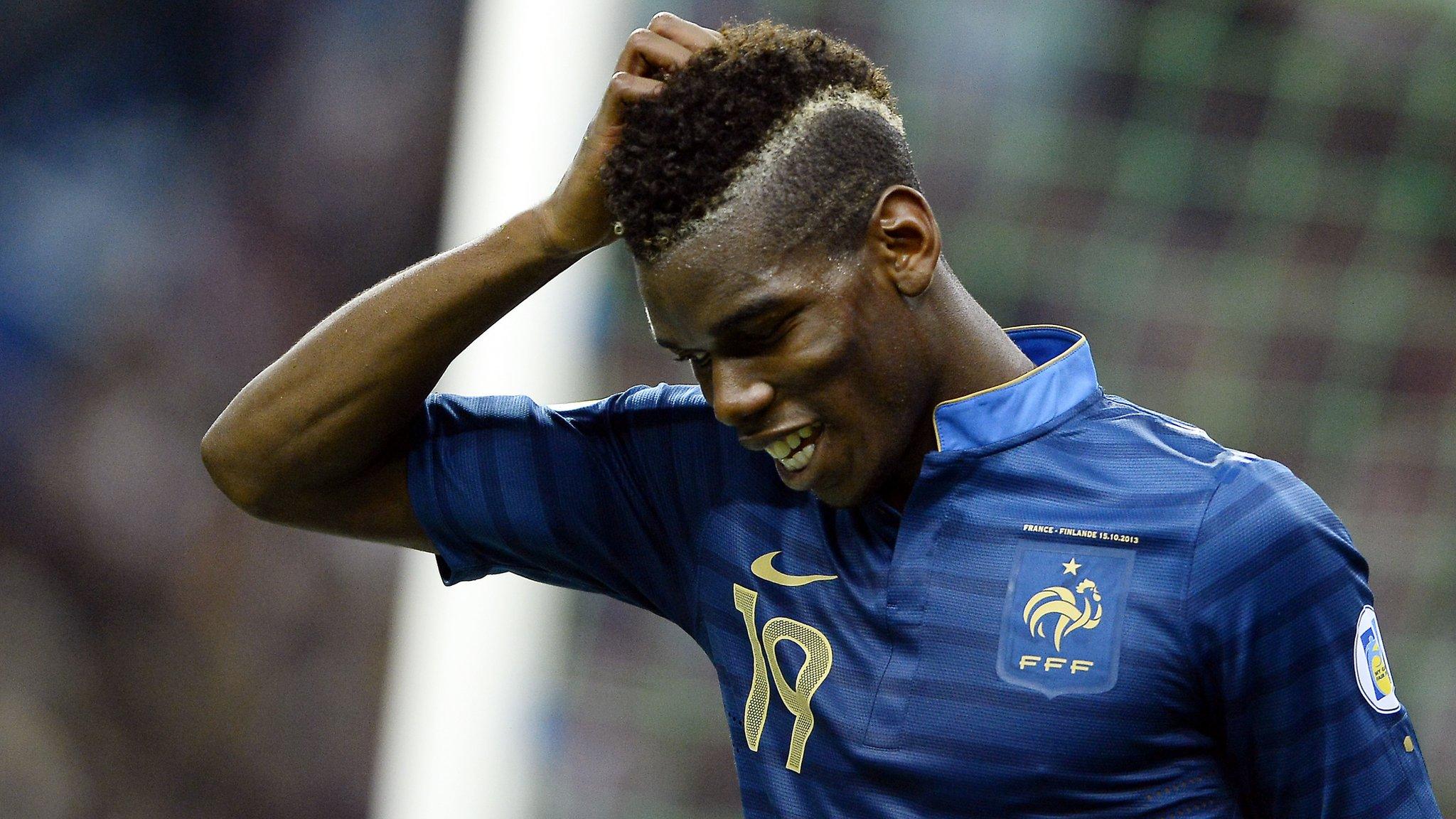
- Published23 May 2014
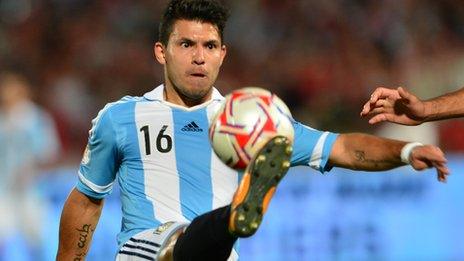
- Published7 June 2014
